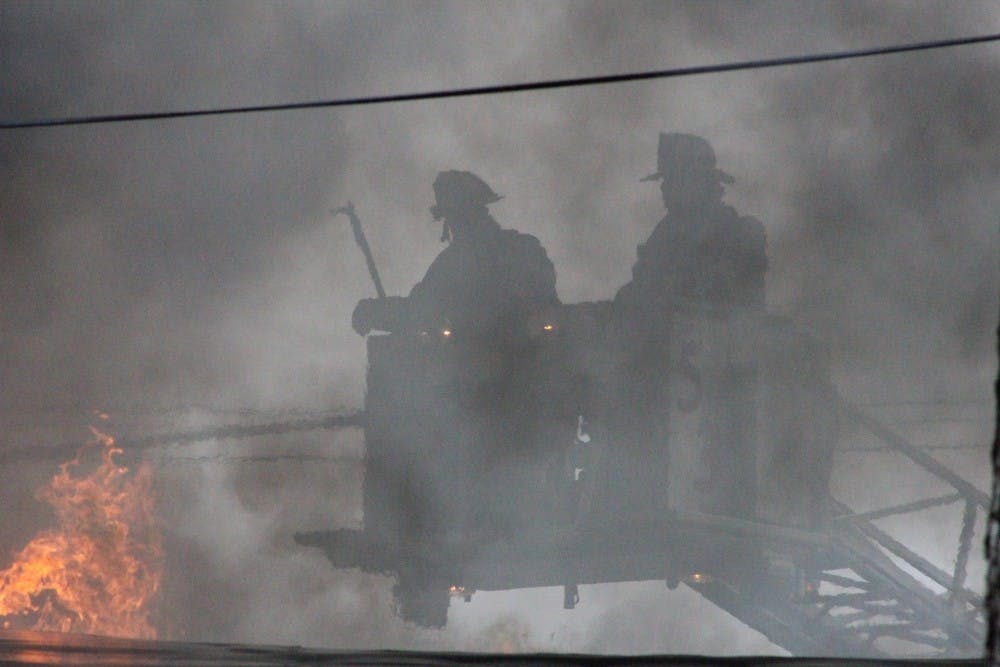Firefighters are trained to run toward danger when others flee. They are some of the first to respond, and the last to leave from a call.
The town of Shippensburg has not one, but three fire companies that serve its residents, which includes the students of Shippensburg University.
Vigilant Hose, Cumberland Valley Hose and West End Fire and Rescue have 80 volunteers between the three companies. Long-time firefighter Randy O’Donnell serves as chief of the department.
“I love it,” O’Donnell said, “It turns into a way of life.”
O’Donnell started his firefighting path early, hanging around the West End Fire and Rescue house while he was still in elementary school. Fast forward to 1987 and O’Donnell becomes an officer with the fire company. He began to serve as fire chief seven years ago.
Like O’Donnell, there are other students interested in starting early. The three fire companies in Shippensburg offer live-in programs to college students interested in volunteering. These firefighters eat, sleep and work at the firehouse.
“It’s certainly a way to get involved with a community where you’re going to make your home for four years,” said Carolyn Seibert-Drager, recruitment committee member for Shippensburg Fire Department.
Training of new firefighters takes about 80 hours over three or four months to complete, according to O’Donnell.
SU student Keith Russell, a junior majoring in management and marketing, lives at Vigilant Hose. Before Russell joined Vigilant Hose, he served as a firefighter in his hometown of Addison, Pennsylvania.
“I just want to help a lot of people,” Russell said. He started as a junior firefighter when he was 13 years old.
Russell’s father was a firefighter, but he was not his only inspiration. Russell’s mother died in a fire at their home while Russell was at school. He was 8 years old.
“My house burnt down when I was younger so I’m just motivated to make sure that doesn’t happen to other people,” Russell said.
Since becoming a firefighter, Russell has been up close and personal with everything from house fires to vehicle accidents to medical emergencies. Last April, The Slate interviewed Russell at Deadend Lane, where a brush fire ravaged vacant mobile homes.
When Russell and the other seven live-ins are on duty, they can get a call at any time of day or night, and must respond — regardless of whether they have an 8 a.m. class to get up for the next day.
Shippensburg University makes a $10,000 donation to each of the fire companies every November, as part of a contract the university has with the companies. About 35 percent of a Shippensburg firefighter’s time is spent fundraising, according to O’Donnell, so donations are always appreciated. This year, SU President George “Jody” Harpster presented the checks to representatives of the three companies on Nov. 19.
In addition to responding to calls from the university, the fire companies help train resident assistants to be prepared for emergencies.
“If they call…we’ll be there,” O’Donnell said.
Shippensburg firefighters cover 107 square miles of land, comprised of more than 35,000 residents, O’Donnell said.
Before becoming a member of the recruitment committee for the fire department, Seibert-Drager reported on fires as a journalist, in which she got to know some of the firefighters.
“There’s something they have that other people don’t,” she said.




The Slate welcomes thoughtful discussion on all of our stories, but please keep comments civil and on-topic. Read our full guidelines here.